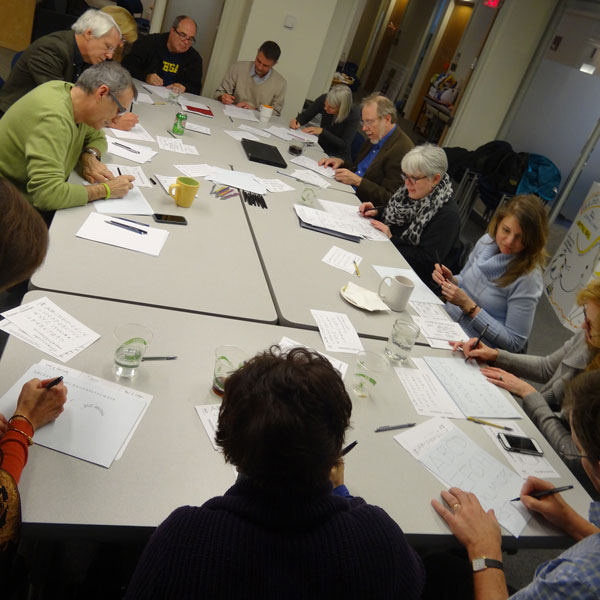 This brief represents the culmination of our year of exploring the theme of unlearning to learn together. Over the course of the year, we have explored how we can best define, understand, and foster unlearning.
This brief represents the culmination of our year of exploring the theme of unlearning to learn together. Over the course of the year, we have explored how we can best define, understand, and foster unlearning.
Unlearning is learning to think, behave, or perceive differently, when there are already beliefs, behaviors, or assumptions in place (that get in the way), at either the individual or the organizational level. It becomes important when individuals, groups, and whole organizations have to find ways to effectively support change, overwrite old habits, surface and supplant entrenched ways of thinking, and develop new ways of working together.
In LILA member settings, the demand for unlearning has become clear in many ways, including when new collaborative processes and technologies are introduced. When individuals or groups learn something for the first time, they typically don’t need to unlearn much. However, professionals in organizations often carry extensive prior habits and expertise built on past experience. Because employees already have many well-established concepts and skills, unlearning becomes an essential component of learning. In fact, unlearning can often be the most challenging aspect of learning something new.
Over the course of the year, we examined unlearning in three contexts: mindsets, habits, and systems. Changing mindsets involves altering conceptions or mental models. Resistance to changing mindsets emerges as defensive patterns fortifying self-interest, personal identities, traditions, and long-standing assumptions. Changing habits involves shifting individual or group behaviors, once people have “signed on” to any new concepts involved. Resistance to changing habits arises in part from old cues in the environment that retrigger old behaviors, and is reinforced by stress and time pressure. Sometimes even with alterations in mindset and habit, not much really changes, because the larger system discourages the new ways of thinking and acting. Resistance to change arises in systems through policies, routines, organizational structures, and even shared values and identities that interlock to block unlearning and change
[download file=”https://www.learninginnovationslab.org/wp-content/uploads/2017/01/LILA-Briefing-Doc-on-Unlearning.pdf” title=”LILA Briefing Doc on Unlearning”]